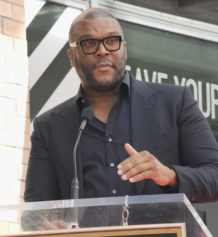As the media glare focused this week on a New Jersey courtroom, where a judge was finally sentencing Dharum Ravi for setting up a webcam to spy on his Rutgers University roommate Tyler Clementi, the case had a resonance far beyond Ravi and his plight. While the judge was willing to consider the details of the case and extend leniency to Ravi, there are literally thousands of young black men (and women) who pass through the criminal justice system every year who get no special consideration and no leniency.
In Ravi’s case, his roommate, Tyler Clementi, committed suicide by jumping off the George Washington Bridge two days after learning that Ravi had set up the webcam to spy on him having sex with a man. The case generated national debate over issues involving gay teenage suicide, the fears and angst of being “outted,” bias, privacy laws and bullying.
A jury found Ravi guilty on all 15 counts. Whether there was a direct cause and result relationship between Ravi’s actions and Clementi’s death was not the legal issue. Instead the charges included bias intimidation, invasion of privacy and tampering with witnesses and evidence. Ravi faced up to ten years in prison but the judge gave him a break and sentenced him to thirty days in jail and up to $11,000 in financial penalties. According to a New York Times report, the judge believed that the State Legislature had intended prison time to be attached to acts of violence, and there had been none. Ravi, born in India, came to this country as a child and as a convicted felon he could be deported back to India. The Judge has also promised he would recommend against that.
There’s much merit to the argument made by those who, while finding Ravi’s actions reprehensible, insist they fall more in the category of dumb male teenage behavior than truly criminal behavior. Putting him away for ten years is unduly harsh, an abuse of the justice system.
Many young black men – and increasingly young black women— also do dumb things and deserve similar kinds of breaks. But too few are getting them. Consider another case, which recently unfolded out of the media spotlight, involving a young black man close to Ravi’s age. Let’s call him Tony. He was one of two passengers plus the driver riding in a car in Northern Virginia when they were stopped by a police officer for the routine offense of “driving while black.” The three young men in the car were clean. They were not speeding, had no prison record; there were no drugs or booze in the car.
The first dumb thing Tony did was lie to the police, giving them a false name and insisting he had no identification on him. (He would later say he was trying to keep his name out of police records.) The police eventually inspected the car and found Tony’s wallet, tucked under the seat. That led to a summons to report to court for a hearing. The next stupid thing Tony did was miss his court date, showing up instead at a court in the wrong jurisdiction. After that, he was arrested. Tony, who lives with his grandmother, was unable to raise $700 bail himself out of jail. He spent the next three weeks in jail while one of his buddies scrounged up bail money from his similarly broke friends.
Ravi’s family, in contrast, had the wherewithal to quickly post the $25,000 bail bond and as a result, Ravi has not yet spent a night in jail. During the nearly two years it took for his case to go to trial, the American Indian community rallied behind him, collecting a thousand names on a petition that they posted on a White House website, urging that Ravi go free. Each day during the trial, Ravi was photographed entering the court with his mother, father and lawyer by his side. As for Tony, his grandmother did the best she could, spending most of her paychecks to help bail Tony out of jail. His mother and father, meanwhile, were far off in distant states presumably doing drugs.
Without this cloak of protection from a strong and viable “village,” too many blacks find themselves vulnerable to judicial abuse. According to a report issued by the civil rights Leadership Council, almost one in three black males ages 20 – 29 is, on any given day, under some form of criminal supervision and is either in prison, in jail or on probation or on parole. “Today it is beyond debate that American minorities are treated unfairly within the criminal justice system. Innocent minorities are detained and interrogated more than innocent whites,” according to a Leadership Council report. “Minorities who violate the law are more likely to be targeted for arrest, less likely to be offered leniency and are subject to harsher punishment when compared to simarily situated white offenders. “ In this case, Dharun Ravi, a bright college student from an affluent family, while not officially white, was accorded a privilege that many young black men, no matter what their economic stats, are routinely denied.
All charges were eventually dropped against Tony and he is back at his old job, driving a truck, squirreling money from his earnings so that he can pay back the many people who helped bail him out of jail. Once Ravi serves his time, we can expect that thanks to support from a close knit and strong family, community and a sympathetic judge, he too will pick up from where he left off, resume his college education and get on with his life. He may come to appreciate his lucky break and how fortunate he is to be a brown American born in India rather than one born in the U.S.A.
Diane Weathers, a former editor in chief of Essence Magazine, is a veteran journalist and freelance writer. She is currently completing her first novel.


